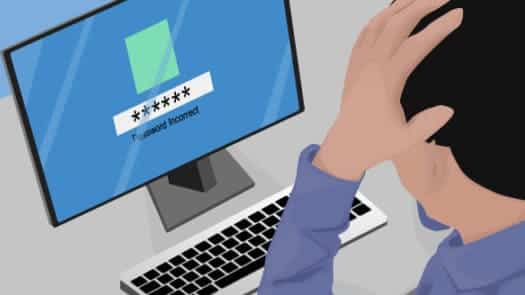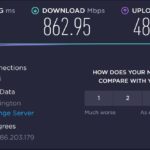There is an important distinction to make between being hacked by a person and being infected with a virus or malware. Virus software and malware are automated processes designed to damage your system, steal your data, or both. There are of course ways that we can defeat these processes, but what if we are instead hacked by an individual?
Logins not working
One of the first steps a hacker might take would be to change the computers passwords. By doing so, not only do they ensure future access to the account, they prevent you from accessing the system to stop them. For the hacker, this is a crucial step that keeps them in control. With this in mind, we always want to make sure to keep on top of our own login details and how often we change them.
Security Emails or SMS’s from online services
Many services track which device and location you logged into your account from last. If your account is accessed from a new device or a different country it might trigger an automated email or SMS to ask if this new login is your own.
If you have logged in using a new computer, tablet, or phone; an email that asks “hey, is this you?” need not be cause for alarm. If you haven’t, it may be time to investigate further. This service is an important part of information security. It may be a key first step to identify someone else gaining access to your account.
Bank accounts missing money or strange transactions
Most commonly today, hackers commit crimes to steal money. The end goal for hackers is typically to profit from their crimes by taking money from people online. It always pays to keep a regular eye on your financial transactions to make sure you know what money is coming and going from your account.
You may see a large sum missing where hackers have attempted to take as much as they can in a single transaction. Alternatively small, hard to notice transactions may appear. These often account for small purchases where attackers have tested the details they have to make sure they work.
Keeping vigilant and maintaining security
These are only some of the modern techniques that hackers can try to use to gain access to your accounts. It pays to be extra vigilant and pay close attention to the signs and signals that indicate you may have been hacked.
An ounce of prevention is worth a pound of cure, as they say. Make sure you use strong and unique passwords on your accounts, don’t open suspicious attachments from people you don’t know and don’t click on what looks too good to be true. Also, use an antivirus that actually works!
So, what about that Facebook hack from couple weeks ago?
If you remember, at the end of September Facebook had a major incident where 90 millions of access token (cookies that allow you to stay connected without having to type your password every time you use Facebook) were stolen. The number was later revised to 30 million. If you were logged out and had to type your password again, your account probably got compromised.
If you want to find out whether hackers stole your data (and what exactly), just visit this link on Facebook Help Centre. Also, as a helpful reminder, before you click on any links, hover your mouse over them and make sure it is what it’s supposed to be!







